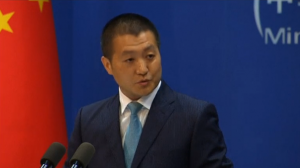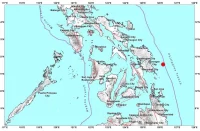
(Reuters) — China said on Friday (October 28) it was communicating with the Philippines over fishing industry cooperation in the disputed South China Sea after President Rodrigo Duterte’s visit in Beijing.
China will consider giving Filipino fishermen conditional access to disputed waters in the South China Sea after the presidents from the two countries meet in Beijing this week, said two Chinese sources with ties to the leadership when Duterte was visiting in China last week.
Chinese Foreign Ministry spokesman Lu Kang confirmed fishing cooperation with the Philippines in the disputed waters was being discussed.
“At present, the relationship between China and the Philippines has entered a stage of improvement. Under these circumstances, it’s very likely for the two sides to go back to (the path of) managing differences through negotiation and focusing on cooperation. During the visit by the President Duterte, China and the Philippines discussed the issue of conducting fishing cooperation, including fishing industry cooperations in the South China Sea. What I can tell you is that both sides are in the communication over this issue,” Lu told media at a regular briefing in Beijing when asked whether Filipino fishermen were able to fish at the Scarborough Shoal.
China seized Scarborough Shoal – claimed by Beijing as Huangyan island and by Manila as Panatag – in 2012, denying Philippine fishermen access to its rich fishing grounds.
The seizure formed part of a case the Philippines took to the Permanent Court of Arbitration in the Hague, which in July rejected China’s territorial claims over much of the South China Sea, including its assertion of a 200-mile (320 km) exclusive economic zone around the disputed Spratly Islands.
China immediately declared the ruling “null and void” but said it was time to get talks started again between the countries directly involved in the territorial disputes to reach a peaceful resolution.
China has overlapping claims in the South China Sea with Brunei, Malaysia, the Philippines, Taiwan and Vietnam.
The United States, along with Japan and other powers, want to ensure Beijing doesn’t interfere with free navigation in the strategic South China Sea, which connects the Indian and Pacific Oceans and through which flows $5 trillion of trade a year.







